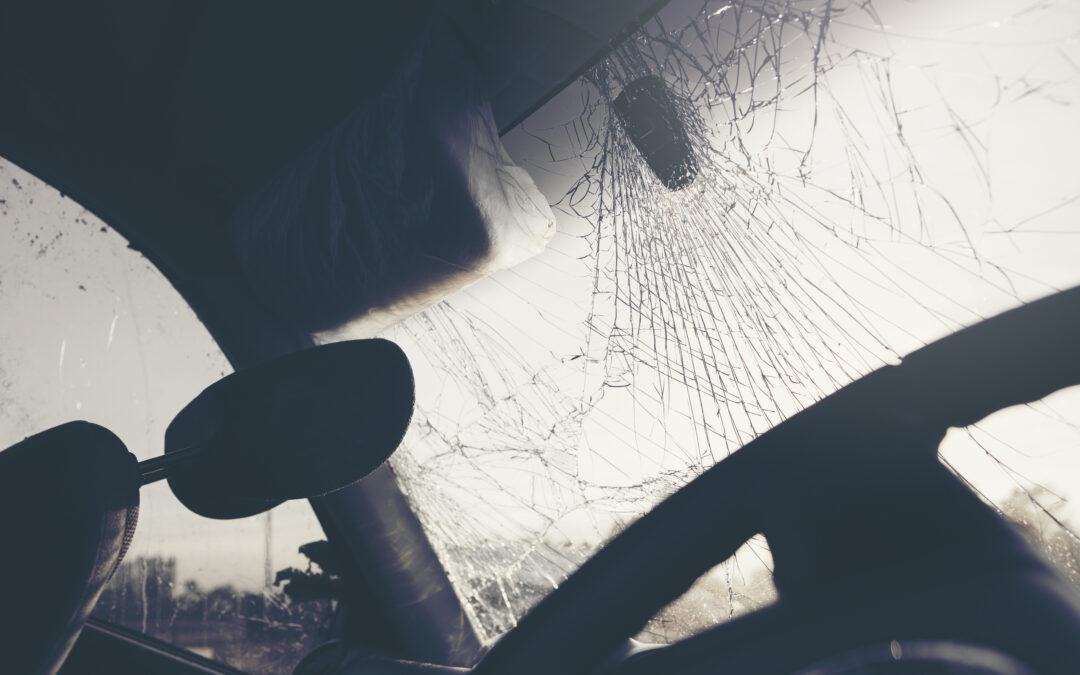Car accidents are a frightening experience. According to the National Highway Traffic Safety Administration, well over two million people are injured on the road every year. According to a report by the Department of Public Safety, 63,751 crashes occurred in 2021 in Minnesota alone.
Experiencing an accident is jarring – even if it is a minor fender bender. If you find yourself in an accident, take a breath and do your best to remember these six steps.
-
Get Your Vehicle to a Safe Place and Check for Injuries
After an initial impact with an object or another vehicle, you will likely be rattled. Depending on the accident’s severity and where it occurred, it may be wise to move the vehicle to the side of the road or another nearby area where it will not obstruct traffic. Do not exit your vehicle until you are away from danger, particularly in icy conditions.
Once you’re stationary, try to collect your thoughts. Take note of any pain or other sign of injury. If you believe you are injured in your back, neck or head, do not move.
-
Call 911
Call 911 as soon as you can safely do so. While it is possible someone else has already made the call, you don’t want to rely on that possibility. Take the lead and let the authorities know what happened, where it happened, and any injuries you suspect you might have. 911 calls are recorded, so any statements you make about your speed or any fault you may have had in causing the collision, may bind you.
-
Take Photos and Videos
If you are not seriously injured and can do so safely, exit your vehicle and document the scene. Do your best to record damage to other vehicles that were also involved in the collision, where the accident took place, and any debris, tire marks, or other evidence of the recent collision. Even things that seem insignificant can prove useful later.
-
Exchange Information with Other Drivers and Witnesses
It is important to obtain the information of other drivers that were involved in the collision. It’s also important to get the information of any witnesses who are willing to speak about what they observed. Witnesses are not required to wait for law enforcement, so collect their name, address, phone number. Law enforcement will collect this information from involved drivers. When you are interviewed by law enforcement, or speaking to others, do not make admissions of your speed, unless you are certain you were traveling below the speed limit.
-
Inform Your Insurance Company
Your car insurance provider will want to know about the accident immediately. Your auto insurer will be responsible to pay your initial treatment expense, regardless of who caused the collision. Remember any statements you make to your insurer regarding fault, may bind you, so be careful not to make unnecessary admissions.
-
Obtain medical treatment.
One of the challenges in your case may be proving that the collision was the cause of the injuries which followed; particularly if you have a pre-collision history of neck or back issues. The only way to establish a record of your pain and complaints will be through your medical records. If it is not charted in your medical records that these pains started shortly after the collision, it will be difficult to later prove the collision caused the injury. If you are hurt, get prompt treatment.
-
Contact a Lawyer
If you have been injured in a collision, speaking to a lawyer immediately thereafter is the best way to recover any damages you may suffer. You are not on an equal footing with the various insurers. Do not attempt to “go it alone”, as your inexperience will likely cost you. Let a lawyer act as an intermediary between you and the insurers. Depending on your situation, you may be entitled to compensation for your injuries and damage to your vehicle.
If you have recently been involved in an auto accident and live in the greater Buffalo, MN area, contact Kiernan Personal Injury Attorneys or call 682-682-1082for a free consultation today. We can speak with you at your home, in our office, or remotely to assess your situation and determine your best legal options. There’s no risk, no obligation, and you pay nothing unless we recover for you.
